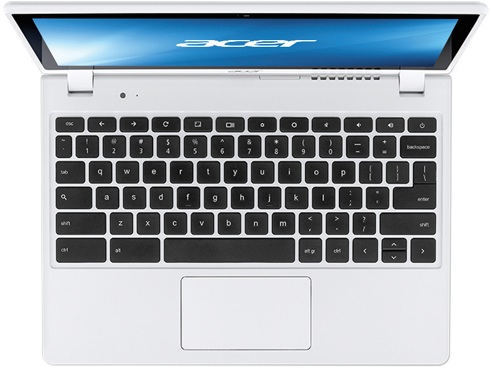
There’s a lot to like about portable computers, but Google and its hardware partners like Samsung, Acer and HP found a way to offer a light weight, lower cost alternative to the traditional Windows laptop. Chromebooks are a hot category of portable computers that run Google’s Chrome OS instead of Windows or OSX. With Chrome’s lower hardware requirements and the ability to leverage Google’s cloud services, a Chromebook can offer a full-featured PC experience in a device that’s lighter and less expensive than traditional PCs, without the limitations of netbooks. They may not be ideal for everyone, but Chromebooks are designed to cover many scenarios and are particularly useful for students, road warriors, small business and those looking for light duty home PC.
Chromebooks are hot. Sales in the category grew 112% in 2013. I and this inexpensive, lightweight 11.6-inch Chrome-powered laptop remains one of the most popular and best-selling Chromebooks on the market (you can still pick one up at Best Buy) —this is exactly the kind of product that’s making Chromebooks best-sellers.
What are Chromebooks and why are they so popular?
Google Chrome OS
Chrome OS is Google’s browser-based PC operating system —the search giant’s equivalent to Microsoft’s Windows and Apple’s OSX. It’s relatively new and very much stripped down to the essentials, meaning it doesn’t have a lot of legacy support baggage and it’s not expected to replace a traditional PC for specialized or high powered tasks.

However, Chrome OS offers the ability to do pretty much anything the average computer user needs to do, and it does this without demanding hardware requirements or the need to buy additional software applications. Chrome OS supports multiple user accounts on the same machine and automatically updates as new versions are released, reducing IT support and security costs.
 Online, All the Time (Well, Most of the Time)
Online, All the Time (Well, Most of the Time)
Chromebooks typically have minimal storage and RAM. That’s because they leverage Google’s online apps to do the work. You can still work on spreadsheets, documents and presentations, but you’re using the cloud to run the apps and store the files.
Unless you’re not. Chromebooks aren’t completely lacking in storage and Google apps allow you to work offline. You just need to plan ahead a little more if you’re going to be working without an Internet connection.
Chromebooks are also up to the usual light PC tasks like web browsing, streaming movies and they can even play casual online games.
Who Uses Chromebooks?
Anyone who values portability (these things really are lightweight), is on a budget or doesn’t care about running high demand applications like Photoshop or PC video games. This makes Chromebooks great as a tablet alternative, a second home PC, a student laptop and a great device for the coffee house set.
They’re also popular with small business, thanks to low cost, low IT support requirements and the ability to leverage Google cloud apps to work remotely or in the office.
Chromebook Accessories
As with any laptop, there are accessories that can make your Chromebook experience even better.
At the top of the list are wireless mice. Check to see if your Chromebook offers Bluetooth support (not all do), and if not, many wireless mice that include a USB adapter are supported by Chrome OS —when in doubt, check the mouse system requirements.
A protective sleeve is a must-have, especially with something as portable as a Chromebook. If you want to store data or big files (like digital movies) locally, an external USB hard drive is a good investment. Want to watch those movies on a bigger screen? You can always add an external monitor, although you need to be aware of the video output ports your Chromebook offers (most have HDMI) and the maximum resolution they can support.

Still not sure whether a Chromebook is the right laptop for you? We’ve written a post about that should help.



